Curated OER
Journalism: Underage Drinking
Students research underage drinking and read a report in the Journal of the American Medical Association about the issue. They interview experts on substance abuse and liquor store owners about their policies. Students publish their...
Curated OER
Changes, Choices, and Lessons
The teen years are nothing but a series of personal, social, and academic changes. Help kids understand what to expect as they mature and give them ways to make good decisions. After discussing they types of changes they'll go through,...
Curated OER
The Truth About Hydrocodone
Students explain the beneficial uses of pain relievers. In this health science lesson, students discuss the harmful effects of prescription drug abuse. They complete a worksheet at the end of the lesson.
Curated OER
Teen and Decision Making
Students examine how the brain develops. In this neurology lesson students read an article citing evidence that the different areas of the brain mature at different rates. They discuss emotional versus logical aspects of decision-making....
ProCon
Should Recreational Marijuana Be Legal?
Almost 600,000 Americans are arrested each year for marijuana possession. Pupils decide if marijuana should be legalized for recreational use after reading state-by-state laws and the top pro and con arguments. The resource also includes...
Curated OER
Deadly Desires
A lesson on STD's captures learners with shocking statistics. Small groups create informational brochures on specific STD's, which they will present to the class. The links for research are overall excellent, but should be previewed for...
Curated OER
I Am Seventeen Going On ?
Students explore the differences between going through adolescence in New York City in 1980 and today by reading and discussing the article, "When He Was Seventeen." They write a script for a podcast about the teen/parent relationship...
Curated OER
Student Led Staff Development: A Teen's Definition of Crisis
Students research an area that is relavent to their age level that concerns them. They work together to create a presentation to give to the faculty. They must use technology in their presentations.
Curated OER
Britney Spears: Famous People, ELL Assignment
If you teach English learners and want a thorough assignment that addresses reading and listening comprehension, speaking skills, vocabulary acquisition, and more, a high-interest content worksheet on Britney Spears may be useful. It...
Social Skills Central
Ready, Set, Respond!
When faced with a difficult situation, do you respond selfishly, face it head on, or ignore the problem? This game encourages learners to evaluate the wide range of reactions we can have to problematic situations, and how our responses...
Social Skills Central
Photo Cartoons: How To Give A Compliment
Help learners develop the ability to offer appropriate, meaningful compliments to others—an essential social skill. Here you'll find a quick photo cartoon illustrating a right and wrong way to give a compliment, as well as a brief...
Curated OER
Real Attractive
Sixth graders create a collage of attractive people. They write about what makes these people attractive. They discuss what makes someone attractive. They research eating disorders and how the media impacts what people deem as attractive.
Curated OER
Dispel Myths, Save Lives
Young scholars explore the reality of underage drinking. In this underage drinking lesson, students read the USA Today article titled 'Dispel Myths, Save Lives,' respond to discussion questions regarding the article, and complete an...
Curated OER
Crime and Young People
Students read the story, "Police in Schools". They view a list of common offences committed by young people and identify the victims of these offences and consider how the offence would affect those people.
Curated OER
Lost and Found
High schoolers define depression and examine different factors that cause it.
Biotechnology Institute
Biotechnology Institute: Your World: Learning About Drugs and Alcohol Through Biotechnology [Pdf]
Find out what role genetics plays in why people become drug and alcohol abusers, and investigate how biotechnology can help shape the future of medications used for addicts.
Partnership for Drug-Free Kids
Above the Influence: Drug Facts: Alcohol
With this resource, teens can learn about facts about dangerous substances and their usage. Click on the dropdown menu at left to find out the alarming risks of alcohol and drug abuse.
Curated OER
Kids Health: Teens Health
Spanish versions of articles from TeenHealth's comprehensive database of information on health topics of interest to teenagers and young adolescents, such as puberty, eating disorders, self-esteem, and drugs and alcohol. English language...
Partnership for Drug-Free Kids
National Youth Anti Drug Media Campaign: Above the Influence
The White House Office of National Drug Control Policy created Above the Influence to decrease drug and alcohol use among teenagers through education, current events reporting, skills training, shared personal narratives, animated...
National Institute on Drug Abuse
Nida for Teens: Facts on Drugs
This comprehensive website covers many drugs, legal and otherwise, that teens may encounter. Find out the various names used, the effects, and much other information teens need and want to know about drugs.
Other
National Crime Prevention Council: Alcohol, Tobacco, and Other Drugs
Site provides great information for parents wanting to talk with their children about drugs and alcohol. Provides realistic and reasonable tips.
USA Today
Three Factors Threaten Teens
Learn main reasons why teenagers experiment with illegal drugs, alcohol, and cigarettes. This article provides statistics about teen drug abuse, discussion questions, and a writing activity.
Other
Partnership for a Drug Free America: Drug Guide for Parents [Pdf]
Do you know the drugs teens abuse? This drug guide shows the top thirteen drugs most commonly abused by teens, including their street names, photos, effects, and signs of abuse.
Other
Streetdrugs.org: Education Resources
Detailed information about individual drugs. Targets students, parents, teachers, law enforcement officials, and health professionals.




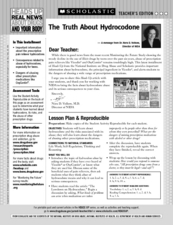







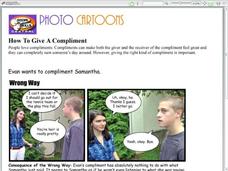

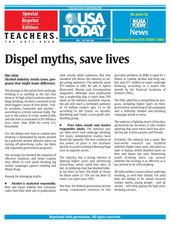
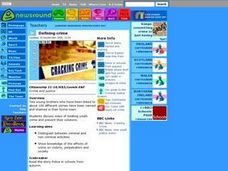

![Biotechnology Institute: Your World: Learning About Drugs and Alcohol Through Biotechnology [Pdf] Article Biotechnology Institute: Your World: Learning About Drugs and Alcohol Through Biotechnology [Pdf] Article](https://d15y2dacu3jp90.cloudfront.net/images/attachment_defaults/resource/large/FPO-knovation.png)
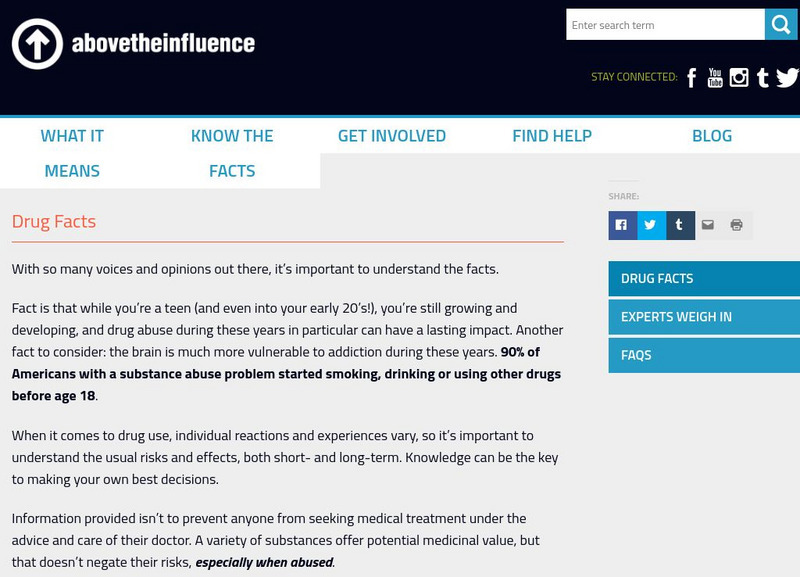
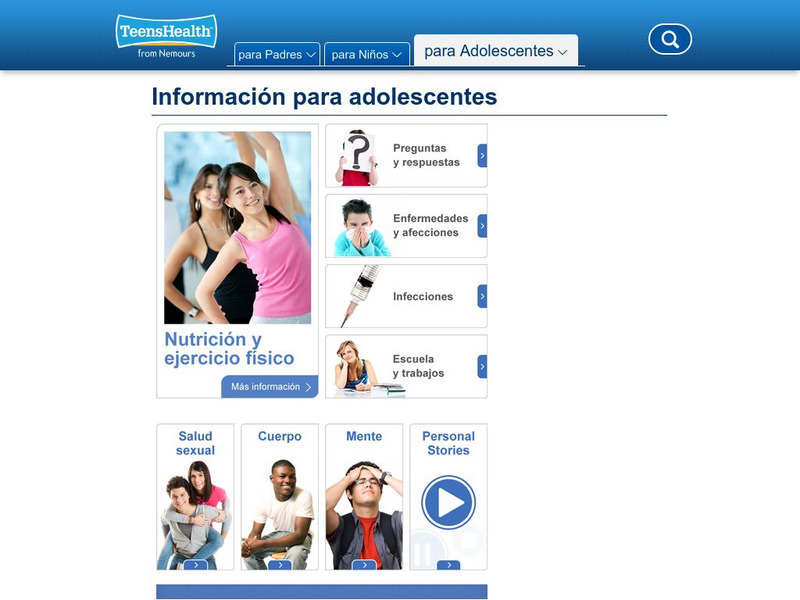
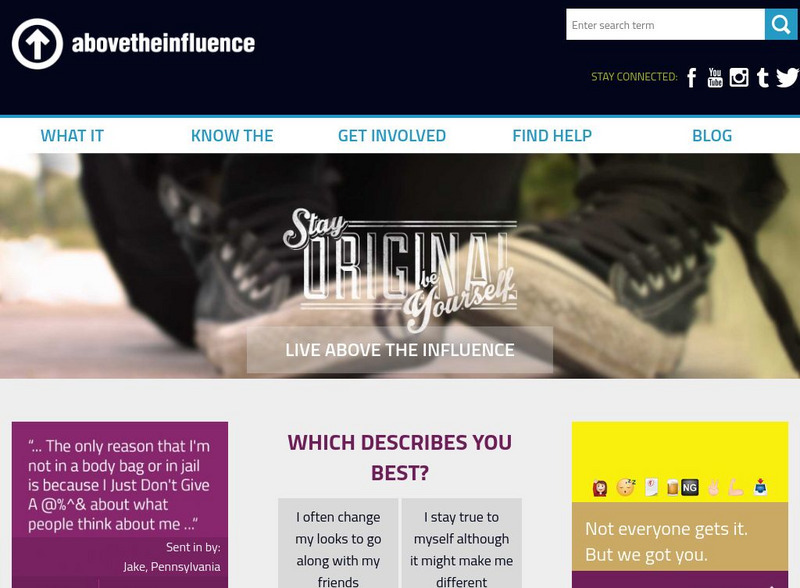
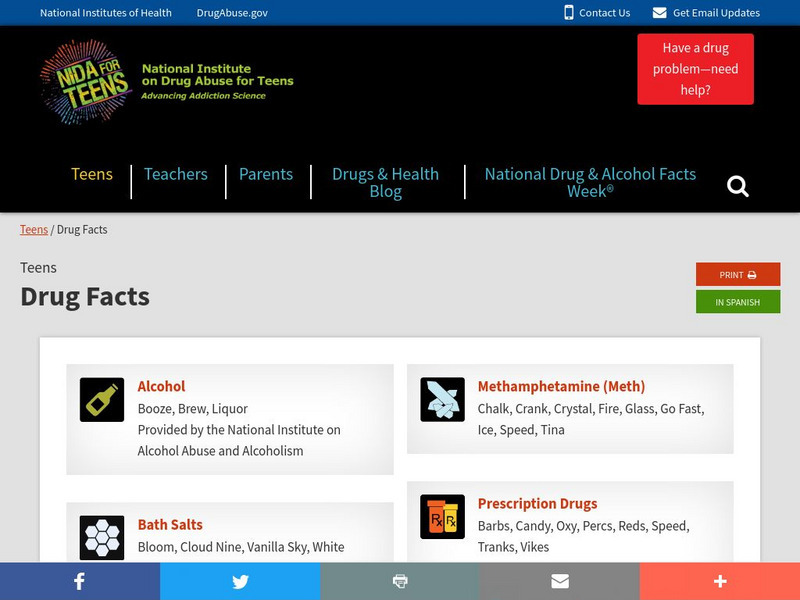
![Partnership for a Drug Free America: Drug Guide for Parents [Pdf] Article Partnership for a Drug Free America: Drug Guide for Parents [Pdf] Article](https://content.lessonplanet.com/knovation/original/500291-3b8efe81f018b9b889653f8e334a6021.jpg?1661242487)
